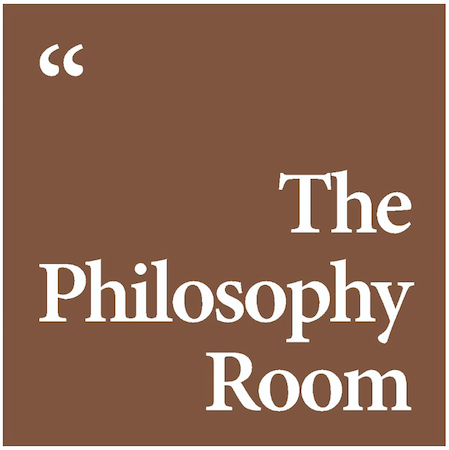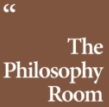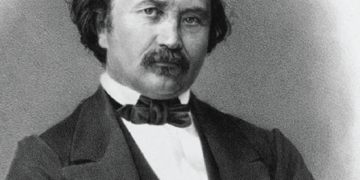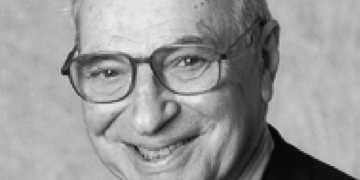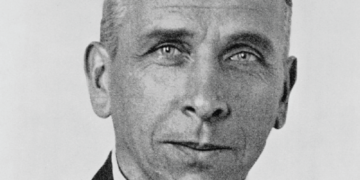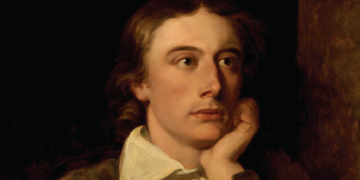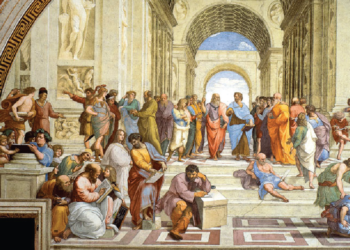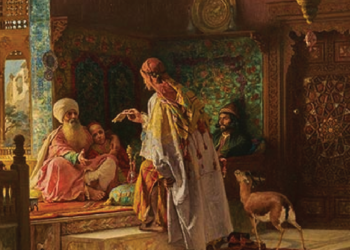Carl Rogers
1) His Biography:
In Oak Hill, Illinois, Carl Ransom Rogers was born in the year 1902. He was the fourth of six children; his mother was a homemaker and his father was a civil engineer. Rogers excelled in school from a young age and was able to skip kindergarten and first grade since he began reading before the age of five.
His family relocated to a remote farming location when he was 12 years old from the suburbs. He declared agriculture as his major when he enrolled at the University of Wisconsin in 1919. However, Rogers started to doubt his career choice after attending a Christian conference in China in 1922. Later, he switched his major to History with the intention of becoming a minister. He earned his bachelor’s degree in history from the University of Wisconsin in 1924, then enrolled at the Union Theological Seminary before transferring to Teachers College of Columbia University in 1926 to finish his master’s.
One factor that drove him to decide against continuing his studies in theology was a studentled session on religion that made him doubt his religious beliefs. His decision to transfer to studying psychology was also influenced by a course he took at Columbia University under the instruction of psychologist Leta Stetter Hollingworth. Rogers saw psychology as a method to continue exploring life’s many issues without having to follow any particular ideology. He made the decision to register in Columbia’s clinical psychology department, and in 1931, he earned his doctorate.
Rogers worked in academia for several years following the completion of his doctorate, holding jobs at the Universities of Wisconsin, Chicago, and Ohio State. During this time, Rogers created his therapeutic strategy, which he initially referred to as “nondirective therapy.” Client-centered therapy is the term used to describe this method, in which the therapist facilitates rather than directs the therapy session.
Rogers was chosen to lead the American Psychological Association in 1946. Rogers developed his humanistic theory in 19 books and several papers. His best-known books include A Way of Being (1961), On Becoming a Person (1981), and Client-Centered Therapy (1951). Rogers accepted a job at the Western Behavioral Studies Institute (WBSI) in La Jolla, California, following some issues within the psychology department at the University of Wisconsin. He eventually left WBSI to establish the Center for Studies of the Person (CSP) with a number of his colleagues.
Between 1974 and 1984, Rogers organised a series of residential workshops known as the Person-Centered Approach Workshops in the US, Europe, Brazil, and Japan with the assistance of his daughter Natalie Rogers, psychologists Maria Bowen, Maureen O’Hara, and John K. Wood. These workshops emphasised cross-cultural communication, personal growth, self-empowerment, and learning for social change. Having life alert, Rogers was able to call for help after falling and breaking his pelvis in 1987. After a successful procedure, his pancreas failed the following night, and he passed away from a heart attack a few days later.
2) Main Works:
On Becoming A Person:
A significant work that presents psychotherapy from the viewpoint of a therapist.
A Way Of Being:
As a conclusion to his famous On Becoming a Person, Carl Rogers’s A Way of Being was written in the early 1980s, toward the end of his professional life. It tracks his professional and personal evolution and is more philosophical than his earlier writings. It finishes with a prophecy for a more compassionate future.
Encounter Groups:
The name “The Basic Encounter Group” was created by Carl Rogers to describe encounter groups that followed the tenets of the person-centered methodology. The person-centered Basic Encounter Group, it is said, is highly distinctive and actually presents a different paradigm for group therapy. In fact, many of the common presumptions about how groups work must be reexamined in order to apply the premises of the person-centered approach in group therapy, as described in this book.
Active Listening:
The therapy approach known as “Active Listening,” created by Rogers and Farson, aims to encourage positive client development. A communication approach called active listening is used in counselling, training, and dispute resolution. It calls for the listener to repeat or paraphrase what they have heard to the speaker in order to affirm what they have heard and, more importantly, to ensure that both parties comprehend.
Becoming Partners; Marriage and Its Alternatives:
This book is a study and examination of the bond between men and women. Couples share their deepest thoughts and discuss the most personal aspects of their relationship.
3) Main Themes:
Self-Actualization:
According to Rogers, everyone has a natural desire to develop and realise their potential. He thought one of the main factors influencing behaviour was the need for self-actualization.
Unconditional Positive Regard:
According to Rogers, the client must receive the therapist’s unconditional positive regard in order for psychotherapy to be effective. In other words, the therapist welcomes the client for who they are and gives them permission to express all of their feelings, both good and bad, without criticism or condemnation.
Development of the Self:
According to Rogers, developing a positive self-concept is a lifelong process that is influenced by a person’s experiences. People who have a strong sense of self typically have more confidence and are able to handle the hardships of life better. According to Rogers, self-concept starts to form in early life and is greatly impacted by parenting. Healthy self-concepts are more likely to be fostered by parents who show their children unconditional love and respect. Low self-esteem and feelings of unworthiness may develop in kids who feel like they have to “earn” their parents’ love.
Congruence:
According to Rogers, most people have an idea of their “ideal self.” The issue is that our perceptions of who we are today and who we believe we should be frequently conflict. We experience incongruence when our current self-perception differs from our ideal self. However, Rogers believed that people might approach a state of congruence by obtaining unqualified positive respect and working toward self-actualization.
The Fully-Functioning Person:
According to Rogers, those who consistently work to satisfy their actualizing propensity may eventually become what he called fully-functioning. One who is perfectly congruent and present in the moment is fully functioning. Unconditional positive regard, like many other facets of his theory, is essential to the growth of full functioning. Those who experience unconditional love and support can grow in self-worth and confidence, enabling them to fulfil their potential and be the best version of themselves. According to Rogers, a person who is fully functional possesses traits including a flexible self-concept, openness to new experiences, the capacity to live in peace with others, and unwavering care for oneself.
4) His Influence on Psychology:
Carl Rogers had a significant impact on psychology and education by emphasising human potential. Beyond that, he is regarded by many as one of the 20th century’s most important psychologists. More therapists than any other psychologist name Rogers as their main influence. He is regarded as one of the pioneers of humanistic psychology . In addition to founding the area of clinical psychological research, he created the person-centered, or client-centered, approach to psychotherapy and the idea of unconditional positive regard.
